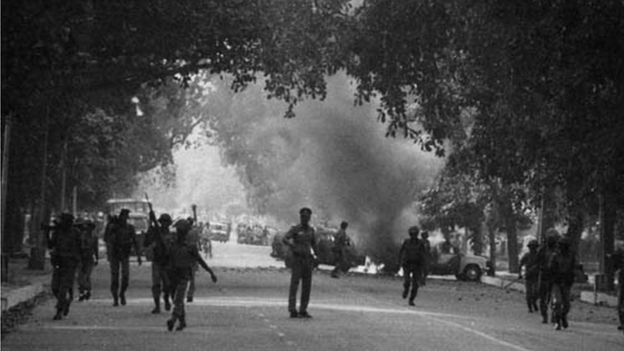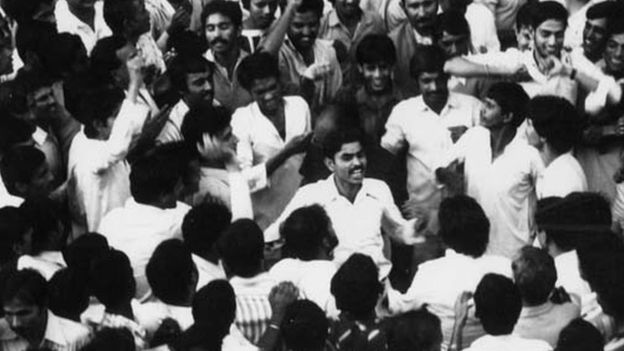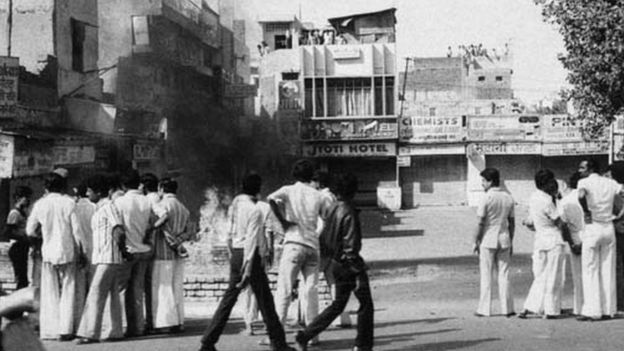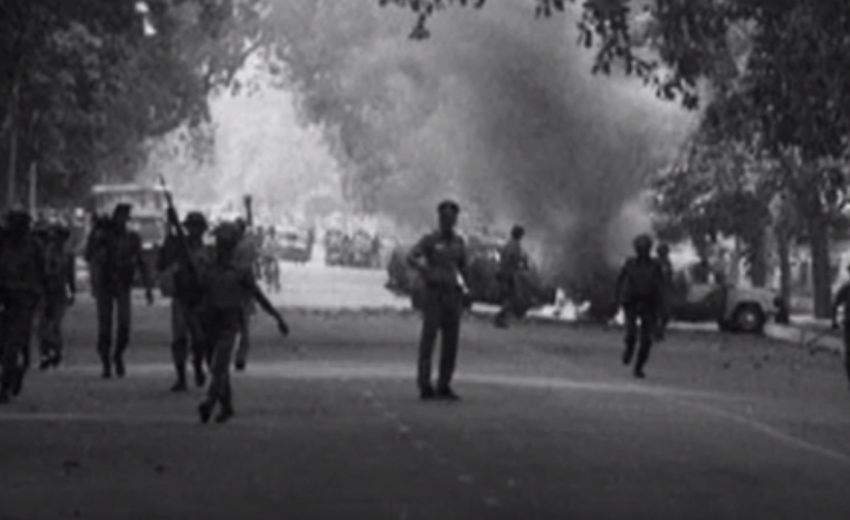"Where were you guys all these days?" I shouted at a journalist who walked into north Delhi and into my path, five full days after violent mobs went on a rampage, targeting members of the Sikh community.
"Where were you when I opened fire, killed people, before people started killing Sikhs?"
I had opened fire to save the historical Sis Ganj Gurdwara where I had successfully secured petrified but still defiant Sikhs who were under attack in Chandni Chowk in the old city.
And I was aggrieved over the radio silence maintained by the police control room on my reports of the violence and repeated queries over the wireless about whether or not my bosses were aware of the action I had taken.
I came to know later that there was uncontrolled carnage in many other parts of Delhi with allegations of inaction by the police.

The journalist's answer to my question was to candidly state, "well nothing happened in the north - at least not on the [same] scale as things that occurred elsewhere in Delhi".
His general perception may have been correct to an extent, but he could not have been more wrong. Things did happen in north Delhi, but were controlled to a great extent, by a handful of committed police officers and men who acted with tremendous grit and a bit of courage, to justify the uniform they wore.
None of these officers and men of the north district who controlled the riots and saved lives of many Sikhs got any recognition or reward for doing their duty. This is in stark contrast to some of our colleagues elsewhere who even received gallantry medals for killing scared and paranoid Sikhs who unfortunately opened fire on the police while trying to defend themselves.
As I told journalists who were following up at the time, "I did not see a person die, unless I killed him!"
I firmly believed that no person (read this as 'no Sikh') had reason to die at any attacker's or aggressor's hand in my presence. I was duty bound to intervene to save the victim. Even if that meant taking the life of the aggressor by opening fire.


Despite the fact that I never deposed before any government-appointed commission that inquired into the Sikh riots in the last 33 years, I believe I remained one of the few Delhi police officers commended in the reports of some of the earlier commissions for doing his duty as was expected.
There is a lot of comment that the police were waiting for clear-cut orders from a totally confused and shell-shocked government and police leadership. That they were paralysed into inaction and ended up looking the other way when atrocities took place before their eyes.
I firmly believe that no policeman needs orders from above to act correctly and timely, as warranted, in times of such need.
If the concerned policeman has dithered and procrastinated, I believe he is guilty of dereliction of duty, if not of actively conniving with the perpetrators.
